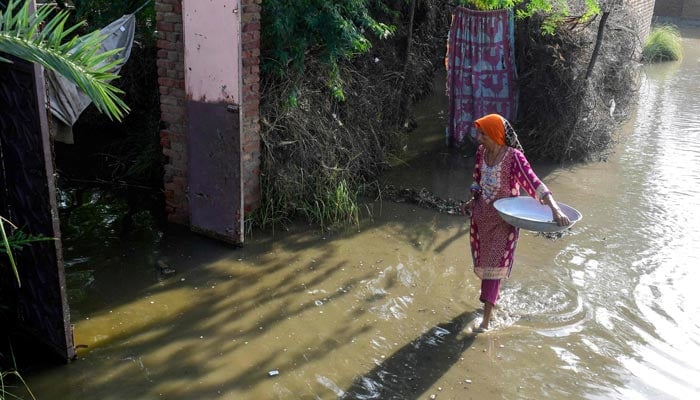Infectious disease outbreak reported in Southern Punjab after floods
Data shows over 140,000 flood victims are suffering from different infectious diseases in South Punjab
September 02, 2022

- Data shows over 140,000 flood victims are suffering from different diseases.
- Punjab Health Department says over 33,000 people are suffering from itching and rash diseases.
- WHO says current flood situation will highly likely increase spread of disease.
Following the outbreak of various disease in Khyber Pakhtunkhwa and Sindh, infectious diseases have also surfaced in the flood-affected areas of Punjab.
The Punjab Health Department has released the data on infectious disease among the flood affectees, according to which, the highest number of diseases have been reported in Southern Punjab.
The data showed that over 140,000 flood victims are suffering from different diseases, out of which more than 37,000 people are suffering from respiratory diseases.
It has been reported by the Punjab Health Department that over 33,000 people are suffering from itching and rash diseases while more than 17,000 victims from Southern Punjab are infected with various stomach diseases including diarrhoea.
Flood likely to boost disease spread: WHO
The World Health Organisation (WHO) said that the current flood situation will highly likely increase the spread of disease, especially if and when response capacities are hindered.
The WHO report focused on what it called the "severe" impact on health facilities, stating that as of August 28, 2022, 888 health facilities have been damaged in the country of which 180 of them are completely damaged. "Access to health facilities, health care workers, and essential medicines and medical supplies remain the main health challenges for now," the report read.
Pakistan's health system is already battling multiple concurrent health threats, including COVID 19, and outbreaks of cholera, typhoid, measles, leishmaniasis and HIV, the WHO said, adding that even before the current floods, there was a significant disparity in access to health services between rural and urban areas.











